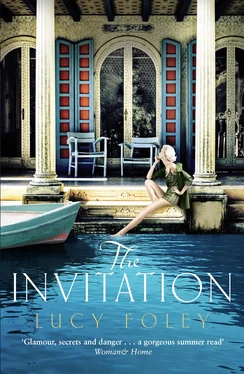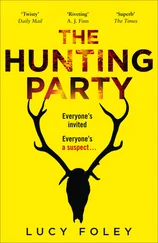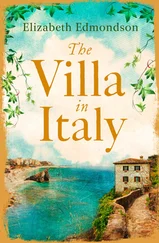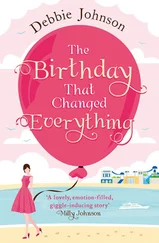Harper
Published by HarperCollins Publishers Ltd
1 London Bridge Street
London SE1 9GF
www.harpercollins.co.uk
First published in Great Britain by HarperCollins Publishers 2016
Copyright © Lost and Found Books Ltd 2016
Cover design © HarperCollins Publishers Ltd 2017
Cover photographs © Joseph Leombruno/Condé Nast via Getty Images (woman), Joana Kruse/Arcangel (building), Shutterstock (boat)
Lucy Foley asserts the moral right to be identified as the author of this work.
A catalogue copy of this book is available from the British Library.
This novel is entirely a work of fiction. The names, characters and incidents portrayed in it are the work of the author’s imagination. Any resemblance to actual persons, living or dead, events or localities is entirely coincidental.
All rights reserved under International and Pan-American Copyright Conventions. By payment of the required fees, you have been granted the non-exclusive, non-transferable right to access and read the text of this e-book on screen. No part of this text may be reproduced, transmitted, down-loaded, decompiled, reverse engineered, or stored in or introduced into any information storage and retrieval system, in any form or by any means, whether electronic or mechanical, now known or hereinafter invented, without the express written permission of HarperCollins.
Source ISBN: 9780007575398
Ebook Edition © May 2017 ISBN: 9780007575381
Version 2017-11-20
To my darling mother, Sue, and father, Patrick:
chief friend-maker and historian!
Table of Contents
Cover
Title Page
Copyright
Dedication
Prologue
Part One
Chapter 1
Chapter 2
Chapter 3
Chapter 4
Chapter 5
Chapter 6
Part Two
Chapter 7
Chapter 8
Chapter 9
Chapter 10
Chapter 11
Chapter 12
Chapter 13
Chapter 14
Chapter 15
Chapter 16
Chapter 17
Chapter 18
Chapter 19
Chapter 20
Chapter 21
Part Three
Chapter 22
Chapter 23
Chapter 24
Chapter 25
Chapter 26
Chapter 27
Chapter 28
Chapter 29
Chapter 30
Chapter 31
Chapter 32
Chapter 33
Part Four
Chapter 34
Chapter 35
Chapter 36
Chapter 37
Chapter 38
Chapter 39
Part Five
Chapter 40
Chapter 41
Chapter 42
Part Six
Chapter 43
Epilogue
Acknowledgements
Read on to Enjoy an Extract From Lucy Foley’s Sweeping New Historical Novel
Keep Reading …
About the Author
Also by Lucy Foley
About the Publisher
PROLOGUE
Essaouira, Morocco, 1955
Essaouira feels like the end of the world. It takes several hours in a bus or car from Marrakech, along a bone-jarring route that is more track than road. Once here the sweep of the Atlantic confronts you, buffeted by the omnipresent wind. Forbidding and grey as an old schoolmistress.
The town itself is governed by this sea: salt-sprayed and windblown, a straggling stretch of white and blue. From the roof terrace of my building you can see the wide boulevards that surround the souks. Then the smaller, serpentine passages within them, hedged on either side by riotous piles of wares. But the market here is a much less fractious place than that of Marrakech, where the stallholders wheedle and heckle. Perhaps it is that the pace of life is slower than it is there – than it is, really, in any other place I have visited in my life. There are a few other Western expats here, like me. Most are exiles in some respect, though the causes are perhaps too diverse for generalization: McCarthyism, bankruptcy, broken marriages. The long shadow of the bomb.
On the other side of my terrace, the view is straight out across the Atlantic. I like to be up to watch the blue-hulled fishing boats setting out in the young hours and then, at dusk, heading home laden with the day’s catch. It lends a rhythm to the day. I know the moods of the sea now almost as well as those fishermen, and there are many. I like to watch the weather travelling in from the outer reaches: the approach of the occasional storm.
Sometimes I find myself panicking, because I realize that I cannot remember her face. I feel that she is slipping from me. I have to wilfully summon her back, through those fragments of her that are most vivid. The scent of her skin warmed by the sun, a smell like ripened wheat. I remember the way her eyes looked when she told me of everything she had lost.
On the rare days of calm I used to imagine her emerging from the depths like Venus, carried towards me on the sea foam. Or not carried perhaps, that was not her way. Striding out of it, then, shaking seawater from her sleek head. But, of course, it is the wrong sea. Thank God for that. If I had spent these years gazing out upon that other sea, I think I would have gone mad.
I wonder sometimes if I have gone a little mad. The majoun , of which I have become partial, has no doubt not helped. Sometimes when I have taken it I experience hallucinations, in which I am absolutely convinced that the thing I am seeing is real. Sometimes these occur days, even a week, after my last fix of the stuff. At least it doesn’t affect the writing. Perhaps it helps.
That spring was the start of everything, for me. Before then, I might have been half-asleep, drifting through life. Before then I had not known the true capacity of the human heart.
I remember it all with such peculiar clarity.
Though I know that now is the time to do this, or never at all, I cannot deny my dread of returning to that spring. Because what happened was my fault, you see.
PART ONE
Now the city is at its loveliest. The crowds of summer and autumn have gone, the air has a new freshness, the light has that pale-gold quality unique to this time of year. There have been several weeks of this weather now, without a drop of rain.
When the city is like this, Hal does not mind being poor. To live in such a place is in itself a form of richness. He is self-sufficient. He has a job, he has no dependants, he has somewhere to sleep at night. A small bedsit in downmarket Trastevere, fine, but it is enough to call home. So different from the life he would have had in England that he might be living on another planet. This suits him perfectly.
Hal has been here for five years now. His father, he knows, thinks that he is treading water. If his son is going to do something as trifling as journalism he should at least have continued working for the English broadsheet. And here he is, a freelancer, writing whimsical pieces for a local paper. His mother is more supportive. Rome, after all, is the city of her birth. He learned his Italian from her. Half the stories she read to him as a child were in her mother tongue; the most beautiful language in the world. Now he uses it so regularly that it is beginning to feel like his first language; the English left behind, a part of his old life.
When he arrives at the place Fede is already waiting for him, drinking what appears to be his second espresso. He grins. ‘Hal! I like this place. I can see why you come here. So many beautiful women.’ He nods to the group in the corner. None of them can be much older than eighteen, but they are dressed in mimicry of the movie stars they no doubt admire: rouged cheeks, cinched waists. One draws on a cigarette self-consciously, blowing a thin plume of smoke over her shoulder in what must be a gesture borrowed from a picture. Her friend carefully outlines her mouth with red lipstick. They are the inheritors of the economic miracle, Hal thinks, modelling themselves on the film stars and fashion models in the pages of the new glossy magazines. They might be a different species altogether from the black-clad matrons glimpsed in Trastevere hanging out their washing, heading to church, looking exactly as they might have done in centuries past. This is Rome, is Italy, all over: the modern and the timeless coexisting in uneasy, spectacular conjunction.
Читать дальше












